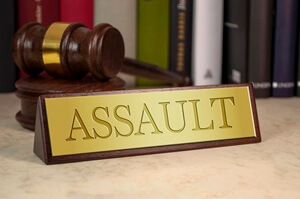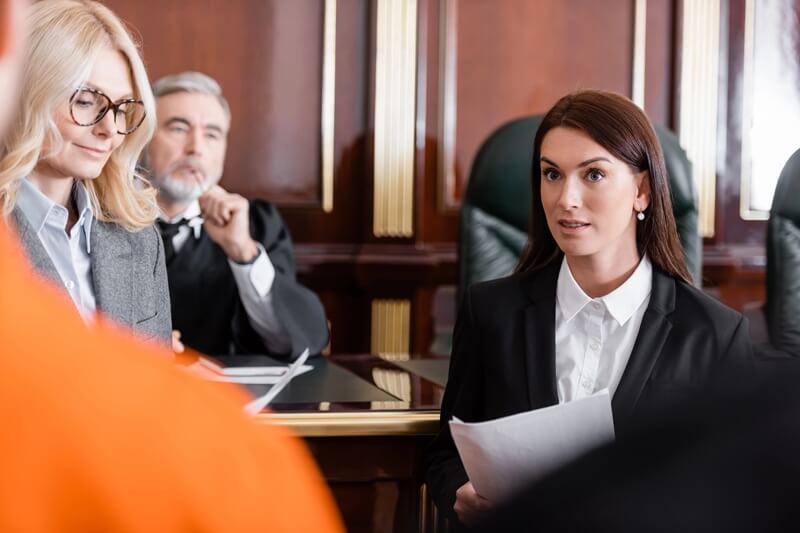How To Navigate The Assault Court Process In Arlington VA
How To Navigate The Assault Court Process In Arlington VA
Overview:
An assault charge can affect your freedom, reputation, and future. The court process moves quickly, starting with arrest and booking, then moving through bail, discovery, and pre-trial motions. If your case goes to trial, both sides present evidence and question witnesses before a judge or jury makes the final decision. What happens at each step can have a big impact on the outcome. A strong defense, led by a lawyer who knows how to challenge the prosecution and protect your rights, gives you an increased chance of reducing charges, avoiding conviction, or reaching a fair resolution.
An assault charge can turn life upside down. Beyond the stress of the accusation itself, you may be facing penalties that threaten your freedom, reputation, and future. Virginia courts treat these cases seriously, whether the incident involves a heated argument or a physical altercation, and the legal process can feel overwhelming without guidance.
Knowing how the court process unfolds is one of the best ways to prepare. From the first moments after an arrest to the final decision in court, every step matters. Learning what to expect, along with having a lawyer who can protect your rights at each stage, can make a significant difference in the outcome of your case.
What Makes An Assault Charge In Virginia?
Assault is not always as straightforward as people think. In Virginia, the law recognizes both the threat of harm and the act of physical contact. This means that someone can face an assault charge even if no injury occurs, as long as another person reasonably fears they are about to be hurt.
The law also separates assault from battery. Assault refers to the threat or attempt to cause harm, while battery is the actual act of physical contact, such as hitting or pushing. These two often go hand in hand, which is why many cases are charged as assault and battery. Knowing this distinction is important because it sets the stage for how the court process unfolds.
Initial Steps After Being Charged
Being charged with assault starts a fast-moving legal process. What happens in the early stages can have a major effect on the outcome of the case.
Arrest & Booking
Police make the arrest, transport the individual to the station, and complete the booking. This process includes fingerprinting, photographs, and gathering identifying information. An incident report is also created, which becomes part of the prosecution’s evidence.
Holding & Initial Decisions
After booking, the individual may be held while the court decides on release conditions. This stage can feel intimidating, and what is said here matters. Remaining silent until a lawyer is present helps protect your legal rights.
Requesting Legal Counsel
Asking for a lawyer immediately is one of the most important steps after being charged. A defense lawyer can review the report, identify possible violations of rights, and begin shaping a defense strategy from the very start.
These first steps set the foundation for everything that follows. Having a lawyer involved early makes it easier to challenge evidence and prepare for the next phase of the process.
The Pre-Trial Phase
After the initial arrest and booking, the case moves into what is called the pre-trial phase. This stage is less dramatic than the trial itself, but it is often where the groundwork for the outcome is really laid. Decisions made here can change the direction of the case, which is why having strong legal guidance early on is so important.
Bail & Arraignment
The first court appearance is about bail and arraignment. Bail is when the judge decides if the person can go home before trial and whether they need to pay money or follow certain conditions to stay out of jail. At arraignment, the charges are read out loud and the person enters a plea, like guilty or not guilty. A lawyer helps by pushing for the lowest bail possible and advising on what plea to enter so the case starts on the right track.
Discovery Process
Discovery is when both sides share the evidence they plan to use in court. This can include police reports, medical records, video footage, and witness statements. A lawyer studies this information carefully, looking for mistakes, missing details, or anything that might help the defense.
Pre-Trial Motions
Before the trial starts, lawyers can ask the judge to make certain rulings. These are called motions. For example, a lawyer might ask to have weak charges thrown out, to block evidence that was collected illegally, or to keep unfair testimony out of court. These decisions can change what the jury sees and hears, which can make a big difference in the case.
The pre-trial phase may not get as much attention as the trial, but it sets the stage for everything that comes next. A reliable lawyer uses this time to prepare, challenge the prosecution, and build the strongest defense possible.
Court Proceedings For Assault Cases
If your case goes to trial, this is where everything plays out in front of a judge or jury. The prosecutor will try to prove you are guilty, while your lawyer will challenge their claims and fight to protect your rights. Every step matters, and knowing what to expect can help you feel more prepared.
Trial Preparation
Before you even step into the courtroom, your lawyer will spend time building your defense. They will go through the evidence, prepare questions for witnesses, and talk with you about what to expect. An experienced attorney can walk you through practice questions so you feel ready and confident when it is your turn to speak.
Evidence & Witnesses
During the trial, the prosecution presents its evidence first. This could be police reports, medical records, photos, videos, or testimony from people who say they saw what happened. Your lawyer will have the chance to question that evidence and those witnesses, pointing out weaknesses or inconsistencies. Then, your side can present evidence and call witnesses to support your version of events.
Courtroom Procedures
Once your case reaches trial, the courtroom follows a structured process. Each stage gives both sides a fair chance to present their version of events. Understanding how this works can take away some of the uncertainty and help you feel more prepared when you step into court.
- Opening Statements: Both the prosecutor and your lawyer explain their case to the judge or jury. They give an overview of the evidence and outline the arguments they plan to make.
- Presentation of Evidence: The prosecution presents its evidence first. Your lawyer then has the chance to respond, introduce evidence on your behalf, and challenge what the other side presented.
- Witness Examination & Cross-Examination: Witnesses testify about what they saw or know. Your lawyer can question these witnesses, point out inconsistencies, and highlight weaknesses in their stories. You may also have witnesses of your own to support your defense.
- Closing Arguments: After all the evidence and testimony are presented, both sides sum up their cases.
Trials move step by step, but every detail counts. The way evidence is presented, how witnesses hold up under questioning, and the arguments made in closing can all influence the final decision in your case.
The Importance Of A Solid Defense

Your lawyer’s job is to look closely at the details: how the incident happened, how the police handled it, and whether the evidence supports the charges. Even small issues can change the direction of a case. With careful preparation, a defense can lead to reduced charges, a dismissal, or a fairer outcome in court.
Having a solid defense also brings peace of mind. When you know your lawyer is prepared and fighting for you, it gives you the best chance at a fair result.
The Irving Law Firm’s Approach To Assault Defense
Assault cases are never alike. The facts, the people involved, and the circumstances all shape how the case should be handled. That is why our team at The Irving Law Firm looks closely at the details and builds a defense that fits your situation.
We review the evidence, examine how the police handled the arrest, and look for weak spots in the prosecution’s case. From there, we focus on pushing for the best outcome possible, whether that means reduced charges, a dismissal, or a fair resolution in court.
Throughout the process, we keep you informed and involved. You should never feel left in the dark about what is happening in your case or what steps come next. Our job is not only to defend you but also to make sure you understand the process every step of the way.





